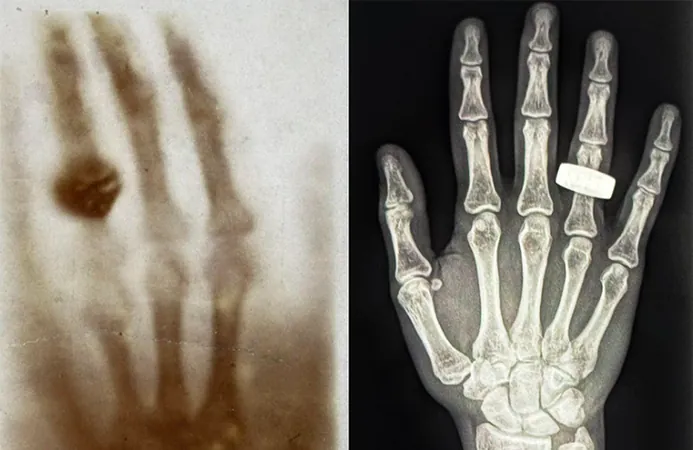
Alarmingly Rising Cancer Rates Among Women and Younger Populations, New Report Reveals
2025-01-16
Author: Benjamin
Key Insights:
The report indicates that women under 65 are now experiencing higher rates of lung cancer than their male counterparts, a fact that has never been recorded before. This significant development calls for a reevaluation of awareness and preventive measures tailored to these populations.
Projections for 2025 are dire; the American Cancer Society estimates that there will be approximately 2,041,910 new cancer diagnoses. Women are expected to account for about 988,660 of these cases, with an estimated 294,220 fatalities. Comparatively, around 323,900 men are forecasted to lose their lives to cancer in the same year.
A Closer Look at Disparities:
The study also sheds light on the stark inequalities in cancer rates across different racial groups. Among Native Americans, the incidence of kidney, liver, stomach, and cervical cancers is two to three times higher than that among white individuals. Additionally, Black individuals face a disproportionate burden when it comes to cancer mortality rates—twice as likely to die from prostate, stomach, and uterine corpus cancers, and 50% more likely to succumb to preventable cervical cancer.
Why This Matters:
The rising cancer rates in women and young people underscore the urgency for targeted screening programs, genetic research, and public health initiatives. With evidence suggesting that lifestyle factors such as increased smoking rates among women, obesity, and changes in reproductive health could be contributing factors, now is the time for society to confront these issues head-on.
This evolving cancer landscape serves as a wake-up call for healthcare providers, policymakers, and communities to address these growing disparities and enact effective prevention strategies.
Conclusion:
The emotional and financial toll of cancer on families and communities cannot be overstated, especially as it increasingly impacts younger populations and women. Awareness, education, and equitable healthcare access are critical to combating this crisis.
Stay informed—understanding the new challenges of cancer can be the difference between life and death. Are you doing your part to stay ahead of the curve?









 Brasil (PT)
Brasil (PT)
 Canada (EN)
Canada (EN)
 Chile (ES)
Chile (ES)
 Česko (CS)
Česko (CS)
 대한민국 (KO)
대한민국 (KO)
 España (ES)
España (ES)
 France (FR)
France (FR)
 Hong Kong (EN)
Hong Kong (EN)
 Italia (IT)
Italia (IT)
 日本 (JA)
日本 (JA)
 Magyarország (HU)
Magyarország (HU)
 Norge (NO)
Norge (NO)
 Polska (PL)
Polska (PL)
 Schweiz (DE)
Schweiz (DE)
 Singapore (EN)
Singapore (EN)
 Sverige (SV)
Sverige (SV)
 Suomi (FI)
Suomi (FI)
 Türkiye (TR)
Türkiye (TR)
 الإمارات العربية المتحدة (AR)
الإمارات العربية المتحدة (AR)